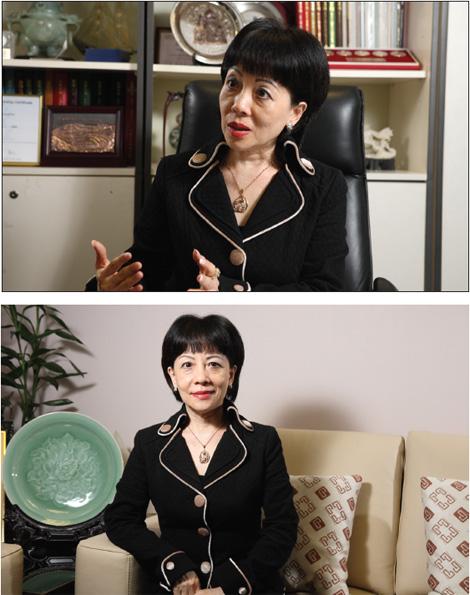Tackling unfair trade practices
Updated: 2010-02-26 07:34
(HK Edition)
|
|||||||

Talking about the background of the revision of the Trade Descriptions Ordinance, Connie Lau said the consumer watchdog body received from the consumers a huge number of complaints concerning provision of services that involved unfair and unscrupulous trade practices in recent years.
In 2008, the watchdog body received a total of 42,050 complaints from consumers, which was an all-time high figure.
Last year, the total number of complaints decreased by 19 percent to 34,114, but the number of service-related complaints stood out at 22,537 cases or 66 percent of the total.
She revealed that the Consumer Council had recommended cross-sector legislation to prohibit the use of unfair trade practices by traders for all products, services and industries. At present, the law is not applicable to property transactions and does not cover services.
However, the government said the Consumer Council recommendation involved complicated issues and affected many pieces of legislation and codes of practice.
Instead, the government wants to do it step by step by putting services under regulation in the first place.
"The purpose of the law revision is to offer greater protection to the consumers and enhance Hong Kong's liberal economy system," she said. "The law targets only unfair and unscrupulous trade practices," she noted, "but not any specific sector."
The scope will cover several dishonest and misleading trade practices that consumers frequently report to the watchdog body.
First, the law seeks to punish service providers who give false or misleading representations, and misleading advertisements that contain insufficient information or omission of important information. It will also target aggressive and pressure tactics used by the traders, she said.
Another type of common unscrupulous trade practice is "bait and switch" by which the shops lure the customers with highly attractive prices. But when the customers come in, the shops will say that the advertised products are no longer available and then lure the customers to buy more expensive products.
Lau also noticed that some shops that receive pre-payment from the customers for various types of services do not have the ability or intent to provide the services.
Such cases often involve customers who have pre-paid for beauty care, fitness, slim fit services or advance purchase of goods.
The shops are unable to provide such services, either because they do not have enough facilities or oversubscribe the number of members/customers. Some shops even close down after receiving advance payment from a large group of customers.
Offenses under the Trade Descriptions Ordinance are criminal offenses that will be prosecuted by the Customs and Excise Department, she pointed out. In the event of cases involving deceptive means, police will follow up.
However, the government wants the Consumer Council to play a more mediator role between the shops and the customers.
"If the companies refuse to give up their unfair trade practices or refuse to mediate with the customers through our intervention, the Consumer Council will have no alternative but to disclose their names.
"Even though the companies may continue to operate under a new name, we think it is useful to have the consumers be wary of the unfair trade practices and not get cheated again," she said.
Fortunately, most of the companies, be they large or small companies, once they become the subject of complaints, are willing to cooperate with the Consumer Council and accept the mediation service.
Lau cited a few recent cases in which the Consumer Council immediately stepped into after they had occurred.
Some unscrupulous salesmen induced customers, especially elderly people, to buy TV set-top boxes to view digital TV programs, on the pretense that terrestrial television will longer be available.
In another case, some telecommunication service companies charged their customers excessive fees for unsolicited SMS messages, without providing a mechanism for them to unsubscribe the services, she said.
In the former case, the government stepped up publicity to make customers beware and decide for themselves when to switch to digital terrestrial TV. In the latter case, the Office of the Television Authority developed a code of practice with the industry, as well as measures to block out unsolicited SMS messages.
(HK Edition 02/26/2010 page4)